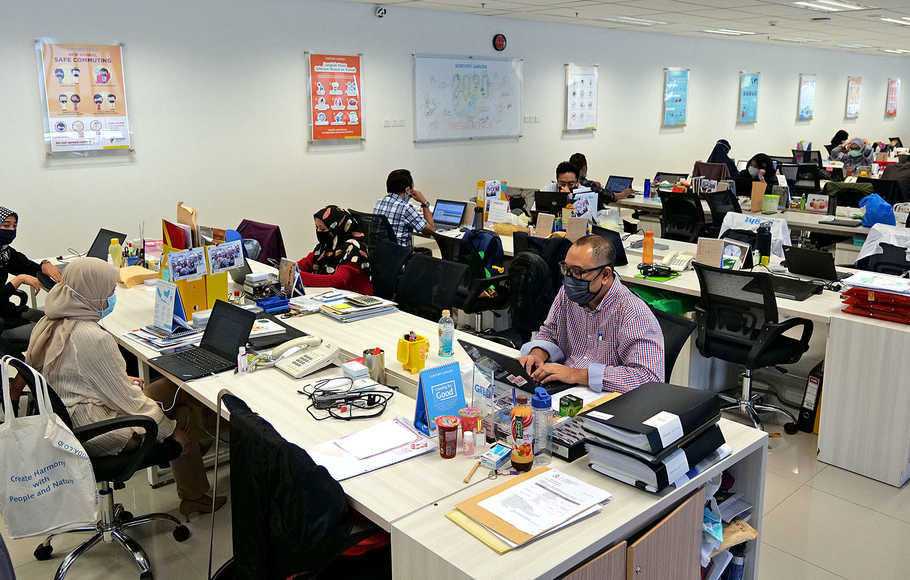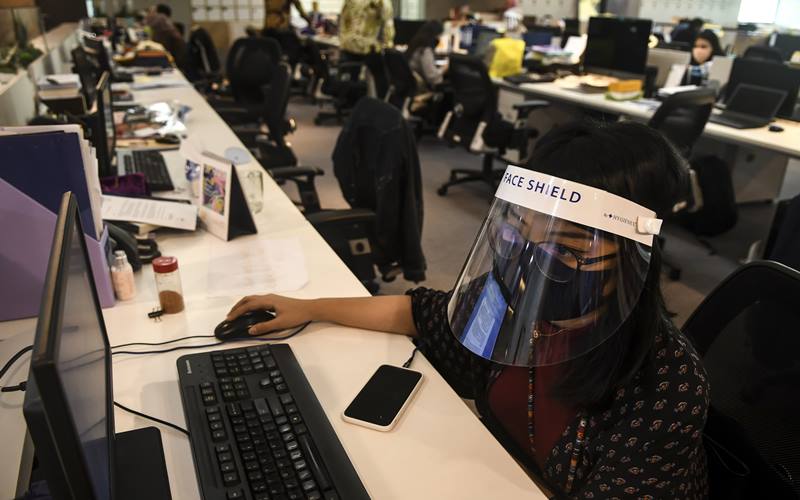Indonesia’s economy is slowly waking from a three-month slumber as large-scale social restrictions ease and companies return to work. As of June 8, the Jakarta government administrations and other regions began a month-long transition period to allow businesses to resume operations even as the Covid-19 pandemic rages on.
The calculation to move to a new normal is one of economic necessity versus health and public safety. If the lockdown continues, officials fear lasting impairment to the economy which would make recovery that much harder. Businesses in sectors such as retail, manufacturing, F&B and aviation are facing a long steep climb back to normality.
According to the Indonesia Chamber of Commerce and Industry (Kadin), 6.4 million Indonesians have lost their jobs over the past three months, bringing the total number of unemployed to 13.4 million. This number is expected to rise if companies continue to struggle in the months ahead.
“We are facing both a demand shock as well as a supply shock,” noted Shinta Kamdani, Kadin vice-chairwoman and CEO of Sintesa Group. “Our exports are down sharply by more than 50% and because of rising unemployment, domestic demand is also very weak.”
“We are not sure if our exports can ever comeback to pre-Covid levels especially in labor intensive industries,” she added. This is why there is now an urgent need for a structural shift in the economy from low-end manufacturing to greater digitalization and automation as more companies adopt Industry 4.0 technology and business processes.
That shift will take some time, perhaps decades to materialize but in the short-term, Kadin is working closely with the government to help local businesses survive by providing working capital loans through the banking system.
According to Kadin chairman Rosan Roeslani, 30% of the country’s Rp6,000 trillion total loan portfolio will require restructuring to avoid defaults. He added that small and medium-sized enterprises (SMEs) are also struggling as nearly 50% of total SME loans of Rp1,000 trillion need to be restructured.
“This why we need bold reforms and short-term financing for the private sector,” Mr Roeslani noted. “We must be careful to avoid a temporary economic impairment from becoming a permanent economic impairment.”
He revealed that Kadin is in close discussions with the government to develop a stimulus plan where the government will guarantee upto 80% of loans to private enterprises. This will aid banks to avoid rising non-performing loans and liquidity risks to their capital.
Business players are hoping the government will provide an additional Rp625 trillion in working capital loans to help them cope with the economic slowdown, according to the Indonesian Employers association (Apindo). Industries such as textiles, F&B manufacturers and the hotel and restaurant sector have been particularly hard hit.
“We cannot bear the large scale social restrictions for too long as economic activity must be continued but of course with proper health protocols,” said Adhi Lukma, CEO of Niramas. “We the employers have conducted strict health protocols and consumers should do the same.”

Mr Lukma, who is also the chairman of the Indonesian F&B Association, said his company had already revised growth projections for 2020 downwards due to fall in demand. “Even with the recent Idul Fitri holiday, we did not see any significant increase in demand.”
Elen Hidayat, CEO Emporium Pluit Mall and head of the Indonesia Shopping Centers Association (APPBI) said that re-opening malls was critical. Under the transition plan, malls will be allowed to re-open on June 15th while leisure categories such as cinemas, fitness centers, karaoke lounges and children playgrounds will be allowed to open on June 20th.
“We will provide all health protocols to our employees including providing masks or face shields, hand sanitizers and wash basins. We will also limit lift and escalator capacity, and conduct cashless payments,” she said.
Ms Hidayat added that all restaurants and food courts within the malls will re-arrange seatings to 50% of maximum capacity. But such moves will also impact the number of employees required. “For example, in a 65,000 sqm mall or shopping center, we need about 3,500 employees to operate but with this new policy, we will only require half that number.”
Many mall operators are also hoping for greater reprieves on land and building taxes, which have been suspended until September 2020. “We hope the government will extend this to September 2021 and also relax the electricity tariffs so we can continue to operate.”

